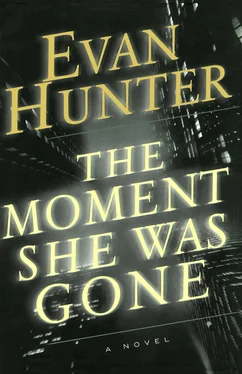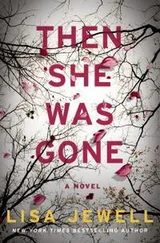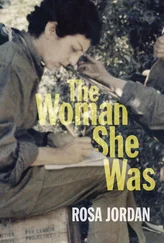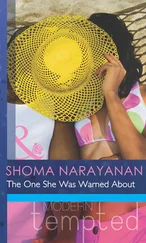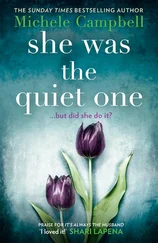The guy who answered the door said he was Josh Levine. I figured him to be twenty-three or — four, a good-looking guy with curly black hair and brown eyes, wearing a white shirt with the sleeves rolled up and the collar open, a red tie hanging loose on his chest. He said he was sorry for the way Freddie had behaved on the telephone, and he assured us that there was nothing to worry about, Annie had just consumed a little too much alcohol. “Consumed” was the exact word he used. (I later learned he had gone to Harvard. He told me that while we were waiting for the doctor.)
Freddie himself was nowhere in sight, God knew where the little prick had run off to. My mother looked around the place disapprovingly. There were ashtrays brimming with butts, many of which I recognized as roaches, and there was the sweetish smell of marijuana on the air — which I don’t think my mother detected as such — and there were girls and boys and women and men asleep on sofas or on strewn pillows all over the floor, and there were empty booze bottles and beer bottles, and a record player going with Michael Jackson’s “Billie Jean.” In the kitchen, a redheaded guy in his late forties, I guessed, was in very deep conversation with a girl who looked nineteen.
My sister was lying on her belly on a bed in a bedroom on the third floor of the building. She was still fully clothed, except for her shoes, but the back of her party dress was unzipped, and her bra clasp had been unfastened. I vowed at that moment that if I ever ran into Freddie Cole again, I would kill him. (I did, in fact, run into him five years later, at a singles bar in Brooklyn, when I was twenty-two and he was twenty-six. He was drunk, so I didn’t kill him.) I sat on the edge of the bed. My mother stood at the foot, shaking her head. Her face was deathly white, her green eyes glistening with anger. Downstairs, far away, another record dropped into place. Men at Work doing “Down Under.”
I shook my sister.
“Annie,” I said, “wake up.”
She rolled over. She tried to prop herself up. and then fell back against the pillow again.
“Annie,” I said, “wake up!”
She opened her eyes. Tried to focus. Recognized me. Smiled.
“Oh, hello,” she said. “Happy birthday.”
Dr. Aaron Tannenbaum had been our family doctor for as long as I could remember, but he wasn’t too tickled to be making a house call on New Year’s Day. He arrived at Josh Levine’s brownstone at a quarter to eleven that morning. Cleanly shaved, impeccably tailored, he looked as if he might be going to brunch in the Palm Court instead of paying a visit to a stranger’s apartment in the Village. Even the sight of two familiar faces — mine and my mother’s — did nothing to mollify him. He greeted my mother gruffly — “Happy new year, Helene” — and then without so much as a hello to me, even though he’d been treating me for acne for the past four years, he asked where Annie was.
We took him up to the third-floor bedroom.
Annie was still out. Dr. Tannenbaum asked me to leave the room. I waited in the hallway outside while he examined her. When he and my mother joined me some ten minutes later, he sighed heavily and said, “I don’t know what she’s ingested, but whatever it was, it was a massive dose. Get her out of here, take her home, and put her to bed.”
“Can’t we pump out her stomach?” my mother asked.
“Wouldn’t help a damn,” Tannenbaum said. “Whatever it was has already been absorbed into her blood stream. Put her to bed. And pray to God she doesn’t wake up a vegetable.”
Annie slept soundly for a bit more than thirty-six hours.
On the second of January in the year of our Lord 1984, she woke up, looked around her room, recognized my mother, recognized me, and in a very hoarse voice said, “Hi, what time is it?”
I told her it was eleven-thirty.
“Morning or night?” she asked.
“Night,” I said.
“Want to watch Johnny Carson?” she said.
“Sure,” I said.
“What’d you take?” my mother asked.
“Take?”
“Dr. Tannenbaum said you ingested a massive dose of some drug. What was it, Annie?”
“I have no idea, Mom.”
“Annie, you were unconscious for...”
“Mom, leave her...”
“I was not un...”
“Don’t tell me you have no idea what you took! You’re lucky we didn’t have your stomach pumped out!”
The room went silent.
“Somebody may have dropped something in my drink,” Annie said.
“Why would anyone do that?”
“How should I know? People do crazy things,” she said.
“What do you mean?”
“To get even.”
“Get even? What are you talking about?”
“For being blond. And pretty. For having good breasts. Who the hell knows? People just do things. You have to watch yourself at all times. I’m hungry. Can I get something to eat?”
She wasn’t a vegetable.
But we still didn’t know what else she was.
What happened to Annie in our senior year at Ambrose Academy was admittedly a bad break, no pun intended.
I find it difficult to think of my mother as a Soccer Mom, especially since the term did not exist back then in 1984. But assuredly, that’s what she was. In March, you see, my sister had the good fortune — or bad, depending upon how you looked at it — to be elected co-captain of the soccer team, and it was in the fifth game of the season, as she was kicking the ball downfield toward the opposing team’s goal, that Annie was blindsided by two girls in yellow and blue tunics and shorts, and knocked off her feet head over teacups, to land at a peculiar angle that broke her left leg.
In her hospital room, her leg in a cast and supported by pulleys and ropes, she told me, “They were after me, Andy. The were out to get me.”
Actually, the girls who’d been responsible for the accident had come to the hospital only the day before, to apologize to Annie, and to tell my mother and me how sorry they were. I could not imagine that they’d been out to break Annie’s leg deliberately. These were prep school girls. Even professional athletes wouldn’t do anything so intentionally cruel. Would they?
“I’m telling you they were out to get me,” Annie insisted. “I should have listened.”
“What do you mean? Listened to who?”
“Haven’t you ever sensed that something was about to happen? I should have listened to my own inner thoughts. But butter wouldn’t melt in their mouths, you know?” she said, and here she fell into imitations of first the chunky redhead who was captain of the opposing team and next her slender blond co-captain, who in tandem had knocked Annie down. Annie’s impressions were dead on, and actually quite funny, both girls shaking hands with her and wishing her luck before the game started, both of them being oh-so-sportsmanlike and rah-rah private-school ladies while secretly planning all along to hit her simultaneously at the thigh and the shin, ensuring a broken leg. “The two-faced bitches,” Annie said.
“Annie, I’m sure they didn’t...”
“Oh, I’m sure they did, ” she said, and handed me a Magic Marker and asked me to write something clever on her cast. I wrote “Give me a break, willya?” Annie thought it was funny.
She did not think the almost-two months she spent in a plaster cast to the hip was comical, however. Nor did she find even mildly amusing the additional six weeks she was forced to spend in a soft cast from her knee to her ankle. Riding the bus on crutches to and from school each day, she complained endlessly, becoming something of a kvetch who railed on about all the mean people in this world — “Like Blondie and her redheaded dyke girlfriend” — who couldn’t bear seeing anyone else getting ahead in life.
Читать дальше
